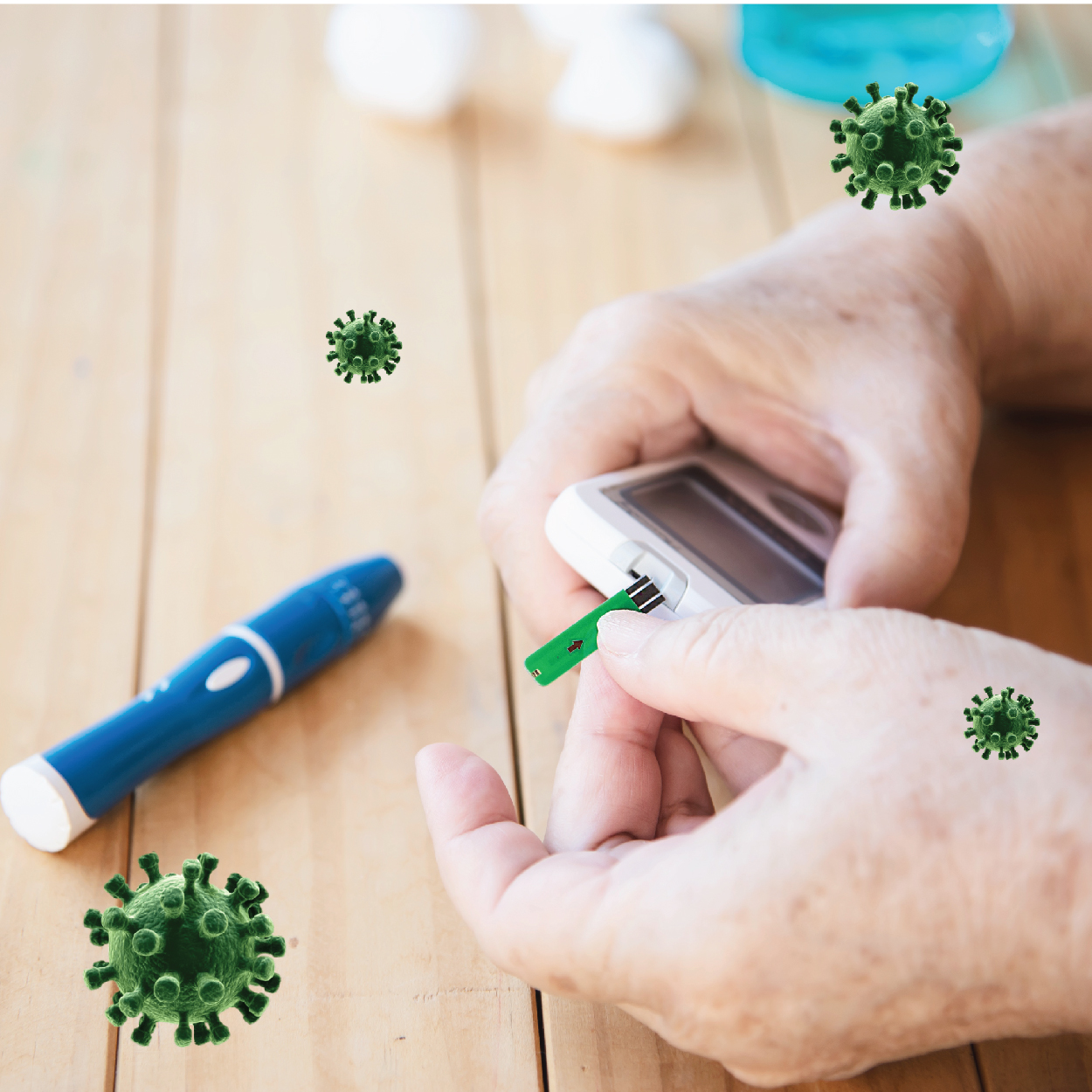
Can Coronavirus Risk Increase In Diabetic Patient
Dr. Vijay Kumar
Diabetologist, Chennai
COVID-19 is creating havoc among nations across the world. Like other respiratory diseases, it is spread through air-droplets that are dispersed when an infected person talks, sneezes or coughs. It can spread through close contact with an infected person or by contact with air droplets in the environment and then touching the mouth or nose.
Are diabetics more prone to get coronavirus infection?
Generally diabetics are more vulnerable to becoming severely ill with COVID-19 as well as other viruses, especially in case of uncontrolled blood glucose levels and possibly the presence of diabetes complications.
In case of high glucose levels, immune system is compromised, immunity is weakened and the body becomes more prone to infections including coronavirus. The virus may also thrive in an environment of elevated blood glucose.
Caring for a diabetes patient
- It is important to take precautions to avoid the virus.
- Increase frequency of monitoring
- Adjust the medications
- Instruct diabetes patients about
- Isolation
- Staying hydrated
- Eating healthy food
If the patient is on insulin, there may be a change in insulin doses and those whoare not on insulin may require insulin
Good diabetes control is important for prevention and treatment
Susceptibility to coronavirus infection in ACE inhibitors/ARBs patients
There have been earlier studies which showed that ACE inhibitors and angiotensin receptor blockers (ARB) lead to an increased formation of ACE2 protein. The SARS-CoV-2 binds to this protein and uses it to enter the cells. Hence, the suspicion about susceptibility was raised.
However, currently, there is no evidence that ACE inhibitors or ARBs use increase the susceptibility towards coronavirus infections and research is warranted to assess the use of these drugs in COVID-19 patients.
Azithromycin and hydroxychloroquine in COVID-19 treatment
In a small sample size, it has been shown that hydroxychloroquine treatment is linked with viral load reduction or disappearance in COVID-19 patients and is reinforced by azithromycin. However, currently, there are no clinical guidelines or clinical evidence available to recommend the use of these drugs in management of COVID-19 infection.
Stay home, stay safe, stay healthy!
Related FAQs
Everything You need to know about Outbreak of Novel Corona virus Infection in china
Coronavirus in India: Symptoms, Cases and Latest Updates
WHO declares Global Health Emergency -India’s first case of Coronavirus in Kerala
WHO Declares The Outbreak Of The Coronavirus As A Pandemic
COVID-19 or Coronavirus Declared as A Pandemic
Difference between Quarantine, Isolation and Social Distancing
101 With Hantavirus: Causes, Symptoms And Treatment
India Under Quarantine: Can It Block The Virus Progress?
British Prime Minister Boris Johnson Diagnosed with COVID 19
Can Coronavirus Risk Increase In Diabetic Patient
Diabetes and Coronavirus (COVID-19)
Coronavirus-Diabetics are more vulnerable By Dr. Manoj Chawla
Prevention from Coronavirus Infections
Coronavirus- Telemedicine for Diabetes patients
Coronavirus: Is India In Stage 3?
Should I Get Tested For Coronavirus?
COVID-19: The Impact On Human Immune System
COVID-19 in heart and Blood Pressure patient
COVID-19- Update for Heart and Blood Pressure patient
Coronavirus Pandemic: Current situation
Coronavirus And Skin Problems: Things You Must Know
COVID 19 And Kidney: Everything You Should Know
Corona Lockdown Extended To 3rd May 2020: Know Why
Covid-19: How To Stay Safe If You Have Diabetes
All That You Should Know About COVID-19 Or Coronavirus
Diabetes And Covid-19: Keep Calm And Stay Safe
Covid-19 Impact On Diabetes Patients: Things To Keep In Mind
Telemedicine: The Safest Mode Of Doctor-Patient Interaction During Covid-19
Everything you need to know about Russian Sputnik V Vaccine
Know the Difference Between Viral Fever and Coronavirus
New 'Double Mutant' Strain Of Covid-19 Detected In India
Will India See A Third Wave Of COVID -19?
Why is COVID Vaccination Important in India?
What are chances of Reinfection of COVID 19 in India ?
Are Children at Risk of Omicron?
Corona- Delta and Delta Plus Variants
Everything To Know About The Omicron Variant
Symptoms and Severity of Omicron: BA.4 and BA.5 | Medtalks
Another Milestone Reached: US Successfully Developers Covid Vaccine For Babies and Toddlers
Indian researchers find a new way to combat Covid-19
Covid-19 Infection Provides Protection against Reinfection for Roughly 10 Months
